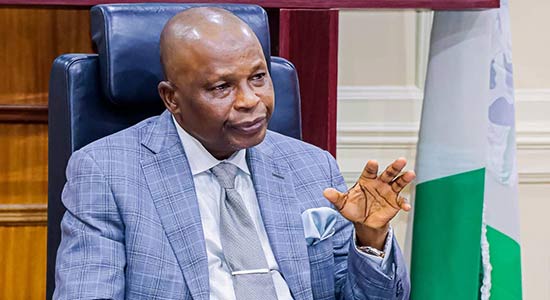Public officials who pocket public funds meant for provision of infrastructure for Nigerians are committing gross human rights abuses, the Attorney General of the Federation and Minister of Justice (AGF-MoJ), Lateef Fagbemi, SAN, said on Friday in Abuja, while insisting on the imperative to stamp the malaise out of public institutions for a safer society.
Arguing that the phenomenon was not just a legal or governance failure, but a direct assault on human dignity, Fagbemi, who spoke in Abuja at a seminar organised by the Inter-Agency Task Team of Anti-Corruption Agencies to commemorate African Anti-Corruption Day 2025, described acts of corruption as gross violations of human rights, added: “When public funds meant for hospitals are diverted, it is not just a policy failure — it is a denial of the right to life and health.”
Represented by Beatrice Jedy-Agba, Solicitor-General of the Federation, the Minister emphasised that misappropriation of education budgets also robbed future generations of opportunity adding that even in the justice system the malady undermined the principle of equality before the law.
“This is why the fight against corruption is not just a political imperative, but a moral obligation,” he stated, while calling the protection of whistleblowers and journalists, playing crucial role in exposing corruption and promoting accountability.
Stressing that war against the crisis was about defending the inherent value of society and humanity, regardless of our socioeconomic standard, he said: “Our commitment to combating corruption, therefore, must go hand in hand with steadfast dedication to the rule of law, due process, and protection of civil liberties.
“As we build resilient institutions, we must also build a culture of dignity where every Nigerian is treated fairly and every public institution sees service as a moral duty.
“While our commitment to fighting corruption is unshakeable, we must be compliant with our commitment to human rights, the rule of law, and the principles of due process that guide and guard our activities within the public space. It is important, also, that law enforcement actions do not trample on civil liberties. Investigations must be fair, and prosecutions remain impartial and objective, and ensure we follow lawful procedures as provided by the Constitution and various other laws.”
Jane Onwumerre, Head, Technical Unit on Governance and Anti-corruption Reforms (TUGAR), who had earlier observed that the 2025 theme: Promoting Human Dignity in the Fight Against Corruption, was quite vital and timely, added: “We are reminded that corruption is not just a financial or legal issue, but a violation of the fundamental rights of our people. When resources for socioeconomic development are diverted, it undermines trust in institutions, hinders economic growth, and disproportionately affects the poor and vulnerable.
“Corruption is a complex issue with far-reaching consequences. One that strips us of our Human dignity, a foundational Human Right that demands that every person has intrinsic worth and deserves to be valued and respected.
Also speaking, the Executive Secretary/CEO, Nigeria Extractive Industries Transparency Initiative (NEITI), Dr Orji Ogbonnaya Orji, said corruption was not just financial misconduct but a direct attack on human dignity that deprives people of access to education, healthcare, clean water, and justice.
“It fuels poverty, undermines democracy, and erodes trust in public institutions. At NEITI, we confront corruption through facts, disclosures, civic engagement, and institutional partnerships”, he added.









